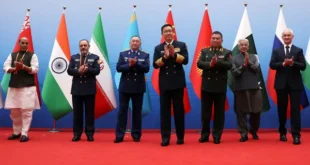- Incidents such as the recent Oil and Natural Gas Corporation Limited (ONGC) barge disaster underline the absence of effective class action suits/lawsuits in India.
- 71 people were killed after Cyclone Tauktae damaged ONGC’s barge vessels off Bombay High.
- Oil and Natural Gas Corporation Limited
- It is a Maharatna Public Sector Undertaking (PSU) of the Government of India.
- It was set up in 1995 and is under the Ministry of Petroleum and Natural Gas.
- It is the largest crude oil and natural gas company in India, contributing around 70% to Indian domestic production.
Important points:
- It is a case brought to court by a group representing a larger set of people, often in thousands, who have suffered the same loss. Such a group forms a class.
- It derives from representative litigation, to ensure justice to the ordinary individual against a powerful adversary.
- The accused in such cases usually are corporate entities or governments.
- Generally, in class action suits, the damages paid may be small at an individual level or may not even be quantifiable.
- The total damages calculated, however, could be large.
- The difference between public interest litigation (Article 32 or Article 226 of the Constitution) and class action suits is that unlike a class action suit, a public interest litigation cannot be filed against a private party.
Benefits:
- An immediate benefit is that the court has to hear only one case and not several. This reduces the chance of similar cases clogging the already overburdened courts.
- As not everyone has the means or time to pursue a legal case, a small group of people with funds or the ability to raise money can bring justice to other victims who may be disadvantaged.
- Companies are reluctant to face such suits as it affects their brand image. They prefer settling such cases faster to minimize the damage to their reputation.
- An advantage for the accused parties, however, is that they have to deal with only one case.
Challenges:
- Tort law has not developed sufficiently in India for a number of reasons, primarily due to the high cost and time-consuming nature of litigation.
- The rules of the Bar Council of India do not allow lawyers to charge contingency fees, i.e., a percentage of the damages claimants receive if they win a case.
- This disincentives lawyers from appearing in time-consuming cases that class action suits inevitably are.
- Since litigation costs are high, class action suits can be made easier by allowing external parties to fund or sponsor the cost of litigation.
- Some states like Maharashtra, Gujarat, Madhya Pradesh, and Karnataka have made changes in the Civil Procedure Code to allow this.
Way Forward
- India should move in the direction of such accountability, which is taken seriously in developed economies, and which makes them better abodes for employment and business.
- Lawyers should be incentivised for taking such cases, it will be a good first step in bringing class action suits into the mainstream.
- Class action suits are necessary if India is to improve its ease of doing business rankings, especially in disaster prevention and risk of life.
SOURCE: THE HINDU,THE ECONOMIC TIMES,MINT
 Chinmaya IAS Academy – Current Affairs Chinmaya IAS Academy – Current Affairs
Chinmaya IAS Academy – Current Affairs Chinmaya IAS Academy – Current Affairs



